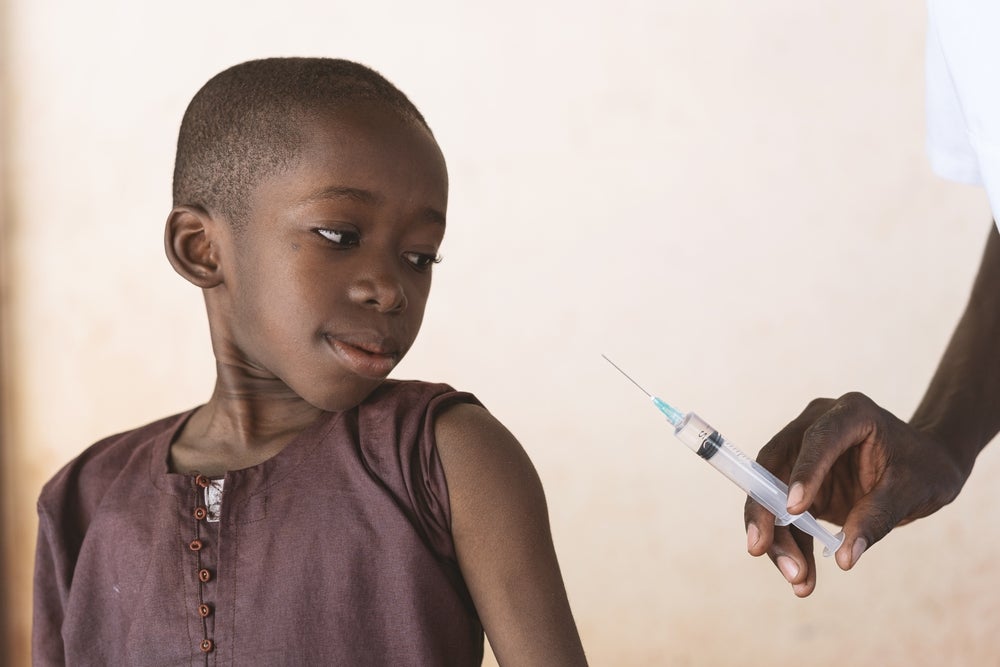Amid the ongoing global mpox public health emergency, Bavarian Nordic – manufacturer of the only approved vaccine for the disease – has submitted data to the European Medicines Agency (EMA) to support an extension for its use in teenagers.
If approved by the EMA, the marketing authorisation extension would grant use of the Imvanex (MVA-BN) vaccine in adolescents from 12 to 17 years of age. Bavarian Nordic stated the change could happen in Q4 2024, according to a 16 August press release.
The news comes on the same day as Sweden reported its first confirmed case of mpox arising from a more serious variant. This is the first the more contagious version has been found outside Africa.
The data submitted to the agency is from an interim analysis of a clinical study (NCT05740982) sponsored by the US National Institutes of Health (NIH). The Phase II trial, which involved 315 adolescents, demonstrated the vaccine worked with the same efficacy and safety as in adults.
The Imvanex vaccine is currently only indicated for adults 18 years and older though it can be used in adolescents in the US, where it is known under the brand name Jynneos, owing to a US Food and Drug Administration (FDA) emergency use authorisation.
The Danish company said it is also preparing trials studying the vaccine’s use in children from 2 to 12 years of age. The trial, partially funded by the Coalition for Epidemic Preparedness Innovations (CEPI), is expected to start in the Democratic Republic of Congo and Uganda later this year. Bavarian Nordic said this could also potentially support a regulatory approval of Imvanex for that age group in African countries.
Current mpox health emergency
Earlier this week, Africa Centres for Disease Control and Prevention (CDC) declared a public health emergency amid mpox outbreaks in its member states. This was swiftly followed by the World Health Organization (WHO) declaring a public health emergency of international concern.
Whilst mpox cases have steadily increased in areas of Africa over the past decade, the number of cases reported so far this year has already exceeded last year’s total, with more than 15,600 cases and 537 deaths.
Bavarian Nordic said it would donate 40,000 doses of its vaccine to the agency to combat the disease, along with an order of 175,420 doses commissioned by the European Health Emergency Preparedness and Response Authority (Hera).
Africa CDC’s Director-General Dr. Jean Kaseya has stated the agency plans to secure around ten million doses to curb the disease outbreak this year.
Michael Marks, professor of Medicine at the London School of Hygiene & Tropical Medicine (LSHTM), said in a statement: “We need a large supply of vaccine so that we can vaccinate those most at risk – in the current outbreak that might be sex workers, children and adults living in areas with many cases.
“The best available evidence supports a need for pre-exposure vaccination, where people at risk are vaccinated before they come into contact with a case. There is less strong evidence in support of post-exposure vaccination.”
Vaccine bottlenecks
Shares in Bavarian Nordic have soared since the outbreak, opening 24.8% higher on 16 August compared to the beginning of the week [12 August] before the agencies declared public health emergencies. Bavarian Nordic’s market cap is $22.4bn.
Imvanex generated sales of $730m in 2023, nearly thrice as much as in 2022, with vaccine revenue now expected to skyrocket in the remainder of 2024.
GlobalData’s associate director of infectious diseases Fiona Chisholm said: “Bavarian Nordic has confirmed that it has the capabilities to produce 10 million doses of the vaccine by the end of 2025 and is waiting to receive orders.
“Nonetheless, vaccines will remain in extremely short supply across countries currently dealing with soaring cases, at least in the short term. This highlights the need for a coordinated international response that ramps up pressure on countries with stockpiles to donate their mpox vaccines.”









